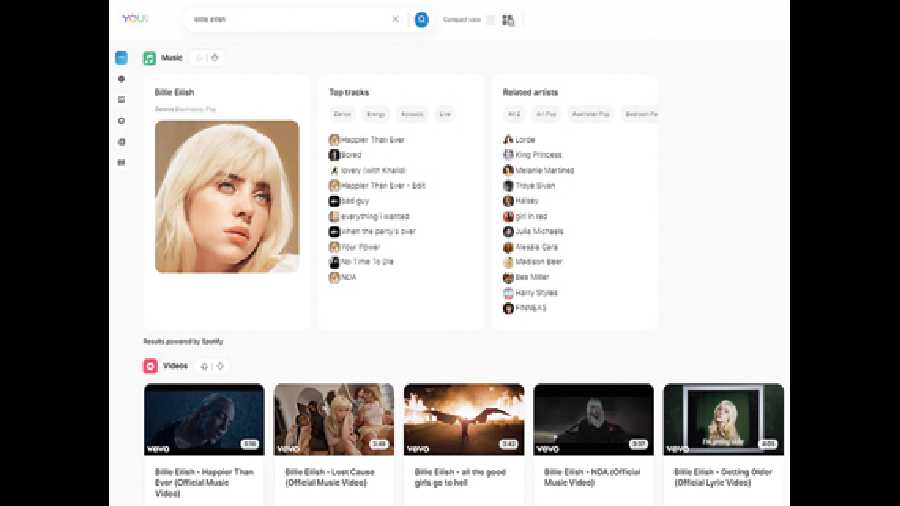Searching on Google.com shows results that appear like snippets on a vertical feed. A company called You.com is taking the challenge to Google with a search engine that revolves around sorting and comparing results.
The distinguishing feature lies in the way information is presented in way of summary from across the web and there is a rich built-in search-through-apps tech at play. Instead of a linear list, there is a grid-like structure and sources include web results and news besides information from specific platforms like Twitter, LinkedIn and Wikipedia, besides individual news sites. That’s not all. Users can influence which sources they see. By upvoting or downvoting specific categories, you can come across search results that are more relevant. On Google.com, search queries come with plenty of advertisements besides the first few results being ad-driven, which doesn’t work for users and turns out to be costly for companies.
A search for ‘Tears of Hercules’, which is Rod Stewart’s upcoming album, turned up different sets of results on Google.com and You.com. After the first few stacks that mostly pointed to news-driven and e-commerce platforms where you can buy the music, came results that are grouped by platforms, like YouTube, ebay, Reddit and so on.
You.com has been founded by Richard Socher and Bryan McCann, and is currently in public beta while there is an announcement of $20 million funding round led by Salesforce CEO Marc Benioff. There is also focus on privacy. First, it’s an ad-free platform (at least for the time being)that doesn’t sell personal information nor track users around the Internet.
Also on the horizon is Neeva, which is the brainchild of former Googlers Sridhar Ramaswamy and Vivek Raghunathan. Most of the links appear via Bing and on search for a product, there is an effort to show reliable reviews. But there is a subscription fee involved after a few months of trial, which ensures there are no adds, affiliate fees or internal applications promoting results.
Yet, Google’s domination over the search market is such that it has become an alternate word for “search”, besides being the default option on most browsers and phones. There is Microsoft’s Bing but it’s market share is small compared to Google while DuckDuckGo has a very small slice of the pie.











